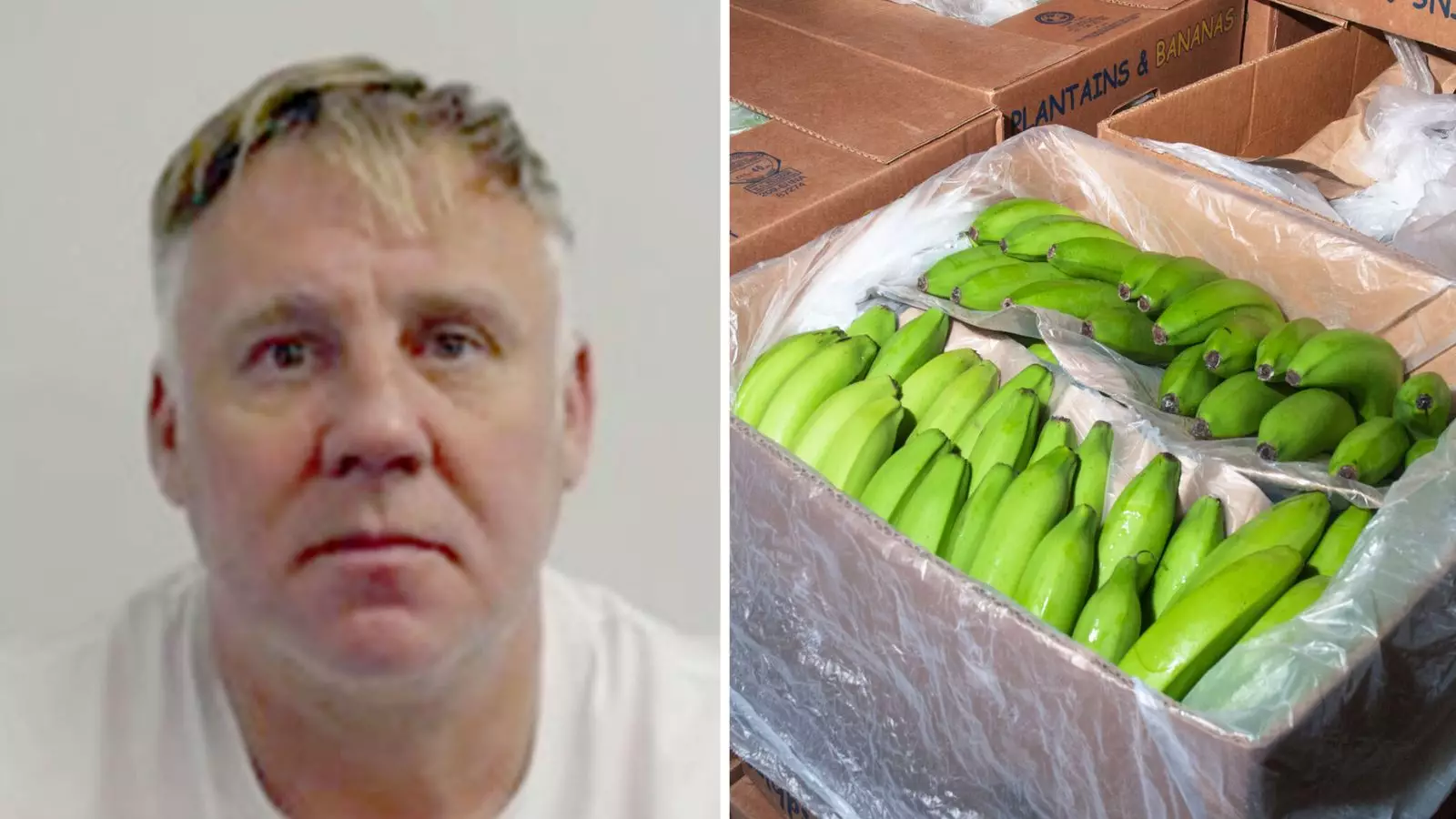The world of organized crime is both intricate and perilous, with individuals often resorting to extreme measures to evade the long arm of the law. One such case that recently captured public attention in the UK involved Jamie Stevenson, infamously known as the “Iceman.” His masterful orchestration of a drug smuggling operation unveils a chilling narrative about the lengths to which traffickers will go, as well as the robust efforts by law enforcement agencies to dismantle such syndicates. Stevenson’s arrest and subsequent sentencing to 20 years in prison mark a pivotal moment in the battle against drug trafficking.
In September 2020, Border Force teams intercepted a massive shipment of cocaine hidden within a cargo of bananas arriving from Ecuador into the UK. This operation, dubbed “Operation Pepperoni,” revealed a staggering stash of 952 blocks of cocaine, which would eventually be valued at an estimated £100 million. While Stevenson’s legal representation contended that the final figure could be closer to £76 million, the scale of the operation shocked authorities. The drugs were intended for a fruit merchant in Glasgow, demonstrating how the intersection of legitimate business and the illegal drug trade poses unique challenges for law enforcement.
Stevenson’s involvement did not solely include this cocaine operation; he also participated in the illicit production and distribution of etizolam, a psychoactive substance commonly referred to as street valium. His multifaceted criminal enterprise showcases not just a single egregious act but a systematic approach to organized crime that has spanned decades.
The authorities’ response to this undercover operation was thorough and multifaceted. Led by Police Scotland in collaboration with the National Crime Agency (NCA), the investigation sought to strike at the heart of organized crime. The operatives utilized innovative methods of investigation, reminiscent of the dramatic narratives seen in crime television series like “The Sopranos.” This comparison was articulated by Graeme Pearson, the director of the agency during his past oversight, who asserted that Stevenson effectively managed his operation akin to a mafia boss.
The workings of “Operation Pepperoni” dovetailed with the broader “Operation Venetic,” which emerged from the infiltration of the encrypted communication platform EncroChat. This synergy among law enforcement initiatives reflects an evolving strategy to counter increasingly sophisticated criminal networks. The interconnectedness of these operations points to a more significant trend in organized crime, suggesting that traffickers are not only growing in number but are becoming more adept and innovative in their techniques.
Upon the revelation of a suspected etizolam pill factory in Kent in June 2020, Stevenson went into hiding. His ability to elude the authorities only heightened his infamy when he surfaced on a list of the UK’s most wanted individuals in 2022. The narrative took another twist when authorities caught hold of him while he was out jogging in the Netherlands. The escalation from suspect to fugitive encapsulated the tension surrounding police efforts to combat drug trafficking amid sophistication and desperation from traffickers.
In August, Stevenson stood trial at the High Court in Glasgow and admitted his guilt on two counts mid-proceedings. His sentence of 20 years reflects both the severity of his crimes and the societal imperative to deter such flagrant violations of the law. Co-defendant Paul Bowes, along with others involved in this illicit ring, also faced judicial consequences for their roles in this expansive drug trafficking and organized crime operation.
The sentencings of other implicated individuals highlight a broader trend in judicial responses to organized crime in the UK. Each of these sentences serves as a tangible affirmation of the legal system’s commitment to counteracting the drug trade and delivering justice for society.
The case of Jamie Stevenson resonates beyond just the courtroom verdict; it represents a larger narrative about the persistent menace of organized crime and its far-reaching implications for society. The authorities’ determination to bring offenders to justice signals a resilient fight against the drug trade. As law enforcement agencies continue refining their tactics in response to evolving methods of trafficking, the landscape of organized crime in the UK remains a crucial area of public concern and vigilance. Each arrest, each sentence, is not just a measure of justice served but a step toward eradicating the ailments caused by drug trafficking from society.


Leave a Reply